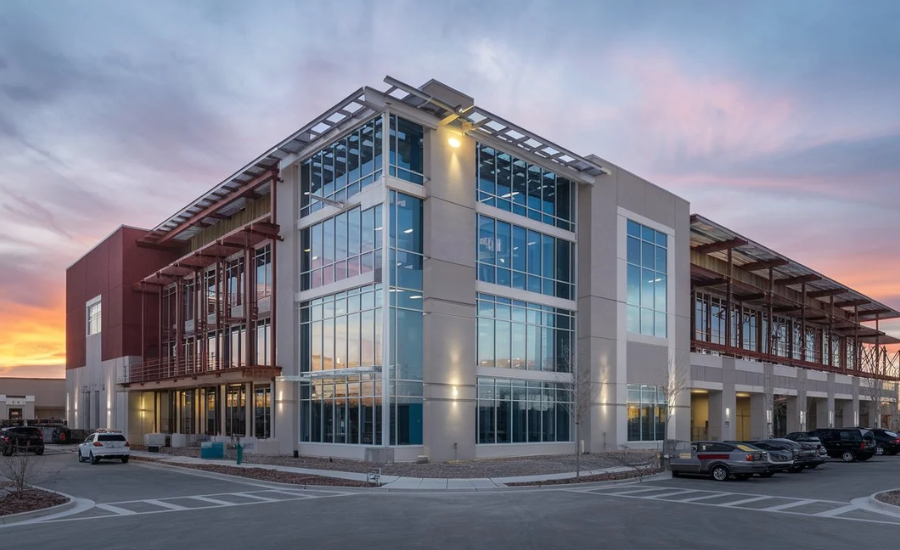Understanding business insurance can often be challenging, particularly when dealing with classifications that directly influence both coverage and premiums. One of the more significant classifications is the 7931 business auto class code, a crucial identifier for companies that engage in automobile-related activities. This specific code helps insurers evaluate risk, making it a pivotal factor in determining insurance costs and coverage options for businesses. By properly categorising businesses under this code, insurance providers can offer tailored policies that better match the operational risks of companies involved in automotive services, from transportation to repair. The 7931 business auto class code not only ensures appropriate coverage but also plays a critical role in premium calculation, allowing businesses to secure the protection they need without overpaying or being underinsured.
Incorporating the 7931 business auto class code into your insurance profile helps streamline risk management by aligning coverage with the actual risks associated with your automotive operations. Insurers use this classification to differentiate between types of business activities, which means that accurately reporting your company’s involvement with vehicles can significantly impact both the range of available insurance options and the associated costs. Companies that fall under this classification can benefit from more comprehensive coverage, tailored to mitigate specific risks linked to their business operations. Whether your company focuses on transporting goods or offering vehicle repair services, understanding the relevance of the 7931 business auto class code can help ensure that you maintain adequate protection while keeping your premiums at manageable levels.
Understanding the 7931 Business Auto Class Code in Workers’ Compensation Insurance

The 7931 business auto class code plays a crucial role in workers’ compensation insurance, especially for businesses that operate in the automotive sector. This classification helps insurance providers evaluate the risks associated with companies that utilise vehicles as a core part of their operations. By assigning this specific code, insurers gain a clearer understanding of a business’s risk profile, which directly influences the coverage they offer and the premiums they charge. This classification ensures that businesses involved in automotive-related activities are properly categorised, which is essential for accurately assessing their insurance needs and risks.
Businesses such as auto repair shops, car dealerships, towing services, and auto body shops are commonly classified under the 7931 business auto class code. The classification is based on the activities of these businesses and the level of risk they pose in terms of accidents, injuries, or liabilities connected to their vehicle-related operations. The use of this code allows insurance companies to tailor their coverage specifically to the needs of these businesses, ensuring that they receive adequate protection while maintaining fair and balanced premium rates. This detailed approach helps insurers manage risk more effectively and provides businesses with the coverage they require.
Understanding the importance of the 7931 business auto class code is essential for businesses that fall into this category, as it directly impacts their insurance policies. Businesses that fail to be classified correctly may end up with inadequate coverage or higher premiums than necessary. The accuracy of this classification ensures that businesses have the right coverage for the specific risks they face, whether they deal with vehicle repairs, sales, or services. By staying informed about how this code affects their operations, companies can secure insurance that not only complies with industry standards but also offers comprehensive protection tailored to their unique automotive risks.
Importance of the 7931 Business Auto Class Code for Risk Evaluation
The 7931 business auto class code is an essential tool that helps insurance companies assess the risks associated with automotive-related businesses. This classification is used to evaluate the likelihood of claims and potential losses, allowing insurers to calculate premiums more accurately. By classifying businesses under the correct code, insurers can determine the exact risk profile of each company, leading to insurance costs that better reflect the actual risk involved in their operations. Accurate risk assessment ensures businesses are neither overcharged nor underinsured, making this code a critical factor in maintaining a fair and balanced insurance policy.
Tailored Insurance Policies for the Automotive Sector
The 7931 business auto class code also enables insurance providers to design policies that meet the specific needs of companies operating in the automotive industry. Businesses that deal with automobiles, such as repair shops, towing services, and dealerships, require customised coverage to address the unique risks they face. This classification allows insurers to offer policies that are closely aligned with a business’s specific operational risks, ensuring that companies receive the most relevant and comprehensive coverage. Rather than relying on generic policies, companies benefit from more targeted insurance protection tailored to their needs.
Compliance and Financial Management for Automotive Businesses
Accurate classification through the 7931 business auto class code is essential for regulatory compliance and financial planning. It ensures that businesses meet legal standards, reducing the risk of fines or penalties due to misclassification. Additionally, understanding how this code affects insurance premiums helps companies manage their financial resources more effectively. By anticipating insurance costs, businesses can better allocate funds, plan for future expenses, and ensure that they remain compliant with industry regulations. In this way, the proper use of the 7931 business auto class code helps businesses not only stay protected but also manage their finances with greater efficiency.
How the 7931 Business Auto Class Code Affects Insurance Premiums

The 7931 business auto class code plays a significant role in determining the insurance premiums that businesses must pay. Insurance companies rely on this classification to assess the specific risks associated with a business’s operations, particularly those involved in the automotive industry. Businesses that fall under this code can experience varying premium rates depending on the degree of risk involved in their activities. For instance, a company that engages in higher-risk automotive operations may face higher premiums compared to a lower-risk business. The class code allows insurers to align the cost of premiums with the actual risk level of each business, ensuring more accurate and fair pricing.
Premiums Based on Risk Levels
One of the key factors in determining insurance premiums for businesses under the 7931 business auto class code is the risk level of their operations. Companies that deal with high-risk activities, such as those involving frequent vehicle use or dangerous repair jobs, will generally see higher premiums due to the increased chance of accidents or claims. On the other hand, businesses that operate with lower-risk activities may benefit from lower premiums. This risk-based approach allows insurance providers to ensure that companies are paying for coverage that accurately reflects their operational risks, offering tailored protection for their specific needs.
Impact on Coverage Options
The 7931 business auto class code not only influences premium rates but also affects the types of coverage a business can obtain. Insurers often adjust the scope and extent of coverage depending on a company’s classification and risk profile. Businesses may have access to specialised coverage that addresses the unique risks associated with their automotive operations, whether they are involved in transportation, repairs, or sales. This ensures that companies receive insurance that is well-suited to their particular activities, protecting them against specific liabilities without unnecessary or irrelevant coverage.
Claims History and Premium Adjustments
Another important factor that impacts insurance premiums under the 7931 business auto class code is a company’s claims history. Businesses with a higher number of claims are often viewed as more risky by insurance providers, which can lead to increased premiums. Insurers use the class code in combination with the business’s claims history to set premium rates that reflect both the inherent risk of the operation and its past performance. Maintaining a low number of claims can help businesses keep their premiums lower, while frequent claims may result in higher costs over time.
Businesses Classified Under the 7931 Business Auto Class Code
The 7931 business auto class code encompasses a diverse range of companies within the automotive industry. This classification is crucial in helping insurance providers assess the risks that come with each type of business and in determining appropriate coverage and premium rates. Companies that fall under this classification typically deal with vehicle-related services, and the risks associated with their operations vary depending on the specific activities they perform. Each category under the 7931 business auto class code presents its own set of challenges, from managing repairs to handling customer vehicles, which insurance companies take into account when calculating premiums.
Auto Repair Shops and Their Coverage Needs
One of the most common businesses classified under the 7931 business auto class code is auto repair shops. These establishments offer a variety of repair and maintenance services, such as engine diagnostics, brake repairs, and routine vehicle checkups. The risks associated with these operations include equipment malfunctions, potential accidents in the workshop, and liability for vehicle damages. Due to the nature of their work, auto repair shops need insurance policies that cover both operational risks and liability for customer vehicles in their care. The 7931 business auto class code ensures that these risks are properly assessed to provide the appropriate insurance coverage.
Insurance for Car Dealerships
Car dealerships, which handle the sale and service of vehicles, also fall under the 7931 business auto class code. Dealerships face a unique set of risks, including liabilities from test drives, managing large inventories of vehicles, and maintaining security for their premises. Because of these specific risks, insurance policies for car dealerships need to be tailored to cover scenarios such as accidents during test drives and potential theft or damage to vehicles on the lot. The 7931 business auto class code allows insurers to assess these factors and provide dealerships with coverage that meets their unique requirements.
Auto Body Shops and Collision Repair Businesses
Auto body shops, which specialise in collision repairs and restoring damaged vehicles, are another category included in the 7931 business auto class code. These businesses often deal with vehicles involved in accidents, which presents distinct risks related to the type of repair work they perform. Collision repairs may involve complex procedures, specialised equipment, and a higher chance of liability due to the nature of accidents. This classification helps insurance companies offer targeted coverage that addresses the specific risks auto body shops face, ensuring they have the right protection for their operations.
Towing Services and Roadside Assistance Providers
It is known for providing roadside assistance and vehicle recovery services, are classified under the 7931 business auto class code due to the unique risks they encounter. Towing services face a variety of operational hazards, such as handling vehicles in dangerous roadside conditions and transporting them safely to their destinations. These risks require comprehensive insurance coverage to protect against accidents, injuries, and damage to both customer vehicles and towing equipment. The 7931 business auto class code helps insurers assess these risks accurately and design policies that address the specific needs of towing businesses.
Importance of Choosing the Correct Class Code

Selecting the appropriate insurance classification, such as the 7931 business auto class code, is crucial for securing the right coverage and ensuring your premiums accurately reflect your business’s risk level. Businesses operating in the automotive sector must align their insurance policies with the specific activities they perform. Failure to use the correct class code can lead to inadequate coverage, higher costs, or compliance issues. Taking the necessary steps to choose the proper classification not only protects your business but also helps you avoid overpaying for irrelevant coverage.
Working with Insurance Experts for Accurate Classification
Consulting with insurance professionals is one of the most effective ways to ensure that your business is classified under the right code, such as the 7931 business auto class code. Insurance specialists are well-versed in the nuances of different class codes and can provide valuable guidance. They help evaluate the scope of your operations and suggest the appropriate classification based on the nature of your business. Working with these experts minimises the risk of misclassification and ensures that your business’s unique risks are fully addressed in your policy.
Assessing Your Business Activities for Proper Classification
To determine the correct class code, including the 7931 business auto class code, it’s important to closely examine your business operations. Comparing your activities to the descriptions provided by the insurer for various codes can help ensure you’re accurately classified. Whether your business deals with repairs, vehicle sales, towing, or other automotive services, understanding how your daily operations align with a specific classification is key to obtaining insurance that fits your business needs. Proper assessment ensures your coverage reflects the actual risks involved in your operations.
Regular Updates to Class Code for Evolving Businesses
As businesses grow and change, their operations may evolve, requiring an update to their insurance classification. For example, a business initially classified under a general automotive code may expand to offer specialised services, necessitating a shift to a more specific class code like the 7931 business auto class code. Regularly reviewing and updating your classification ensures that your insurance remains aligned with the nature of your business. This not only guarantees continued compliance but also provides the right level of protection as your company evolves.
The Financial Benefits of Accurate Classification
Choosing and regularly updating the correct class code, such as the 7931 business auto class code, has financial benefits for businesses. Accurate classification can lead to more appropriate insurance premiums, avoiding overpayment for coverage that does not match your business’s actual risk profile. Additionally, having the correct classification reduces the likelihood of coverage gaps that could result in significant out-of-pocket expenses in the event of a claim. In the long run, properly managing your class code is a critical step toward protecting both your business and your bottom line.
Common Misunderstandings About the 7931 Business Auto Class Code
There are several prevalent misconceptions surrounding the 7931 business auto class code that can lead to confusion for business owners in the automotive sector. One of the most notable misunderstandings is that all auto-related businesses fall under the same classification. In reality, each type of business, from auto repair shops to dealerships and towing services, is assigned a distinct class code that reflects its specific operations and associated risks. Recognizing these differences is crucial for securing accurate insurance coverage tailored to the unique needs of each business.
Distinguishing Risk Levels Among Class Codes
Another common myth is that a higher class code directly indicates a greater level of risk for a business. While it may seem intuitive that a higher classification correlates with increased risk, this is not necessarily the case. The class code functions as a tool for assessing risk profiles rather than serving as a definitive measure of how risky a business is. Thus, businesses classified under the 7931 business auto class code might not always be exposed to higher risks than those with lower class codes, underscoring the importance of understanding the context of each classification.
The Dynamic Nature of Class Codes
A frequent misconception is the belief that class codes are unchanging and fixed in time. In truth, class codes can evolve based on various factors, including changes in industry practices, regulatory developments, and emerging risks. This dynamism means that businesses must remain vigilant and informed about any shifts that could affect their classification. Staying updated about potential changes to the 7931 business auto class code and others is essential for ensuring that a business’s insurance coverage accurately reflects its current operations and risks.
Importance of Regular Review and Adjustment
Because class codes are not static, it is crucial for businesses to regularly review their insurance classifications and make adjustments as needed. As operations evolve—whether through expansion, diversification, or changes in services offered—the class code may also require updating. Failing to adapt to these changes could lead to coverage gaps or misclassification, both of which can have significant financial repercussions. Business owners should periodically assess their operations and consult with insurance professionals to ensure they are classified correctly.
Implications for Insurance Coverage and Costs
Understanding the nuances of the 7931 business auto class code and its implications is vital for effective insurance management. Misconceptions can lead to inadequate coverage or excessive premium payments. By grasping the intricacies of how class codes work, business owners can secure appropriate insurance that aligns with their specific risks. Ultimately, being informed about these aspects not only protects the business from potential liabilities but also promotes better financial planning and resource allocation in the long term.
Summary
In summary, the 7931 Business Auto Class Code is essential for businesses engaged in automotive activities, as it facilitates accurate risk assessment, tailored coverage, and adherence to industry regulations. By comprehending this class code, businesses can effectively manage their insurance requirements and enhance financial planning.
Whether operating a towing service, auto body shop, dealership, or repair shop, understanding your class code is vital for securing appropriate insurance coverage. With the right insights and resources, companies can successfully navigate the complexities of insurance and safeguard themselves against operational risks.
Stay In Touch For More Updates And Alerts: Dee Forbes

